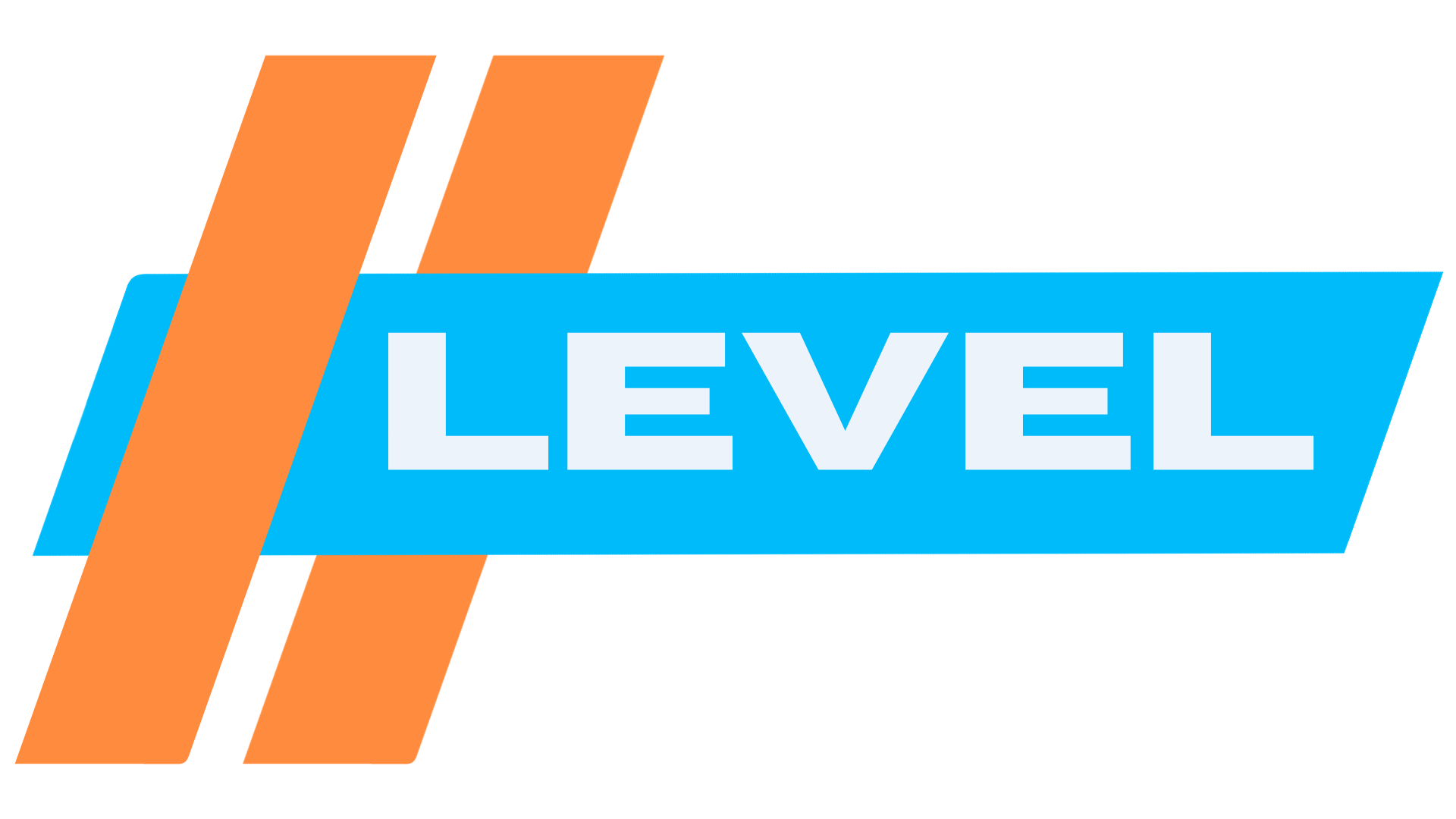There's a new approach to residential development that started gaining steam when the world was shut down, and it may be more than just a phenomenon (or maybe not). As the world becomes more connected, human desires for individuality and community seem to be increasingly at odds with traditional real estate development.
Zooming way out
Certain words we encounter in daily life can affect an almost physical response in us, based on our experience with those words. Unsurprisingly, many of those words have a particular political bent to them: Progressive. Conservative. Communism. Globalism.
Included on many people's list of "trigger words" is tribalism. To some, it evokes ideas of backwards thinking, or conjures pictures of scantily clad natives, wholly unaware of the human and technological "advancements" taking place outside their little bubble. Others of us ascribe talk of tribalism to that "low IQ" class of our peers and assure ourselves that it has no place in a post-bretton-woods world. But perhaps there's more to it than this, and tribalism should be properly investigated.
The way the world is ordered and organized today seems logical and reasonable on the surface, and indeed it may be. As nations rose to power across the globe and industrialization came into its' own, by the middle of the 20th century, our lives, on a global scale had become intertwined. Economic supply chains, nuclear risk and monetary policy all became collective enterprises, with individual nations continuously putting the "needs of the world" above those of their citizens. In retrospect, globalism hasn't been too hard of a sell, given the veneer of altruism to it all.
And yet...
We've seen fractures and "un-intertwining" at various points between numerous state and non-state actors over the last few decades. This un-intertwining (or decoupling, as they say on the news) also seems to be accelerating rapidly in the midst of the 15-minute news cycle coverage of global pandemics and tensions in eastern Europe. A globally linked social and economic system is still just a collection of individual nations, and on a more granular level, individual people, willfully choosing to remain linked. It's long been thought that this global system was insulated to certain risks, since the decoupling cost of any individual nation was deemed to be too high to survive.
As Russia increasingly removes itself (both of their own doing, and the doing of other nations) from the world stage, it feels like a sloppy chess game is being played by novices; from haphazard embargoes to commodity shortages to unprecedented SWIFT banking decisions. This all highlights that the globally integrated system we have been accustomed to may indeed be much more fragile than anyone would like to believe.
If a globally connected socio-economic life has problems, but seems to have worked for the last 50 or so years, why is it worth talking about tribalism– that mostly dead ideology only propped up by small religious sects?
Zooming in a bit
Davidson and Rees-Mogg, in their 1997 book The Sovereign Individual touch on what may lie at the heart of all the bracelet-jingling and hand-wringing we have witnessed from globally-connected leadership:
"Every social system, however strongly or weakly it clings to power, pretends that its rules will never be superseded. They are the last word. Or perhaps the only word. Primitives assume that theirs is the only possible way of organizing life. More economically complicated systems that incorporate a sense of history usually place themselves at its apex. Whether they are Chinese mandarins in the court of the emperor, the Marxist nomenklatura in Stalin's Kremlin, or members of the House of Representatives in Washington, the powers-that-be either imagine no history at all or place themselves at the pinnacle of history, in a superior position compared to everyone who came before, and the vanguard of anything to come."
If you want to read up more on the various topics that came from this book, Doug Antin (linked here) is whose writing you want to check out.
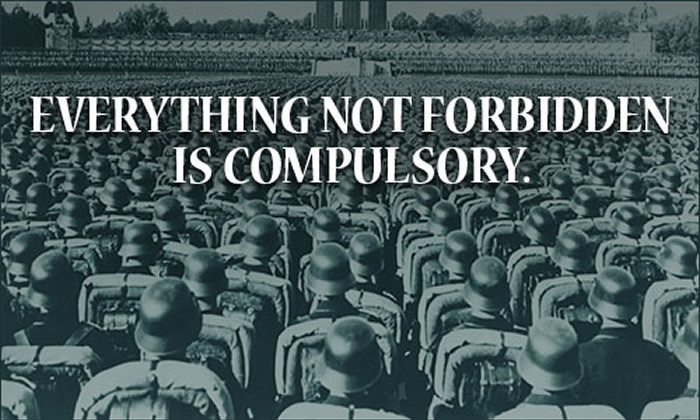
Remember that loose definition of what tribalism is from earlier in this article? Stated simply, an extended social group with shared values. We've become accustomed to view this idea through our globally connected sunglasses.
And the built environments we've inhabited (at least for the last 50+ years in the U.S.) have reflected this "worldwide vision". Residential and commercial building design and methods have increasingly put less and less emphasis on the needs and desires of the individual, or small community, and instead have focused on developing and building general purpose boxes that are (at least modestly) profitable, regardless of the value-systems of their occupants. To "appeal to all" as a developer or builder, you can't imbue purpose or form, only function. You must be neutral; anti-septic. Otherwise, you risk excluding large sub-sets of potential customers.
Here's the problem
While the idea of belonging to "one race" (the human race) at the very top of the Identity Pyramid (shown below) has real meaning and significance, most individuals find their strongest connections and values at the lower levels, which are more granular, more differentiated, more emotion-based and WAY more tribal in nature.
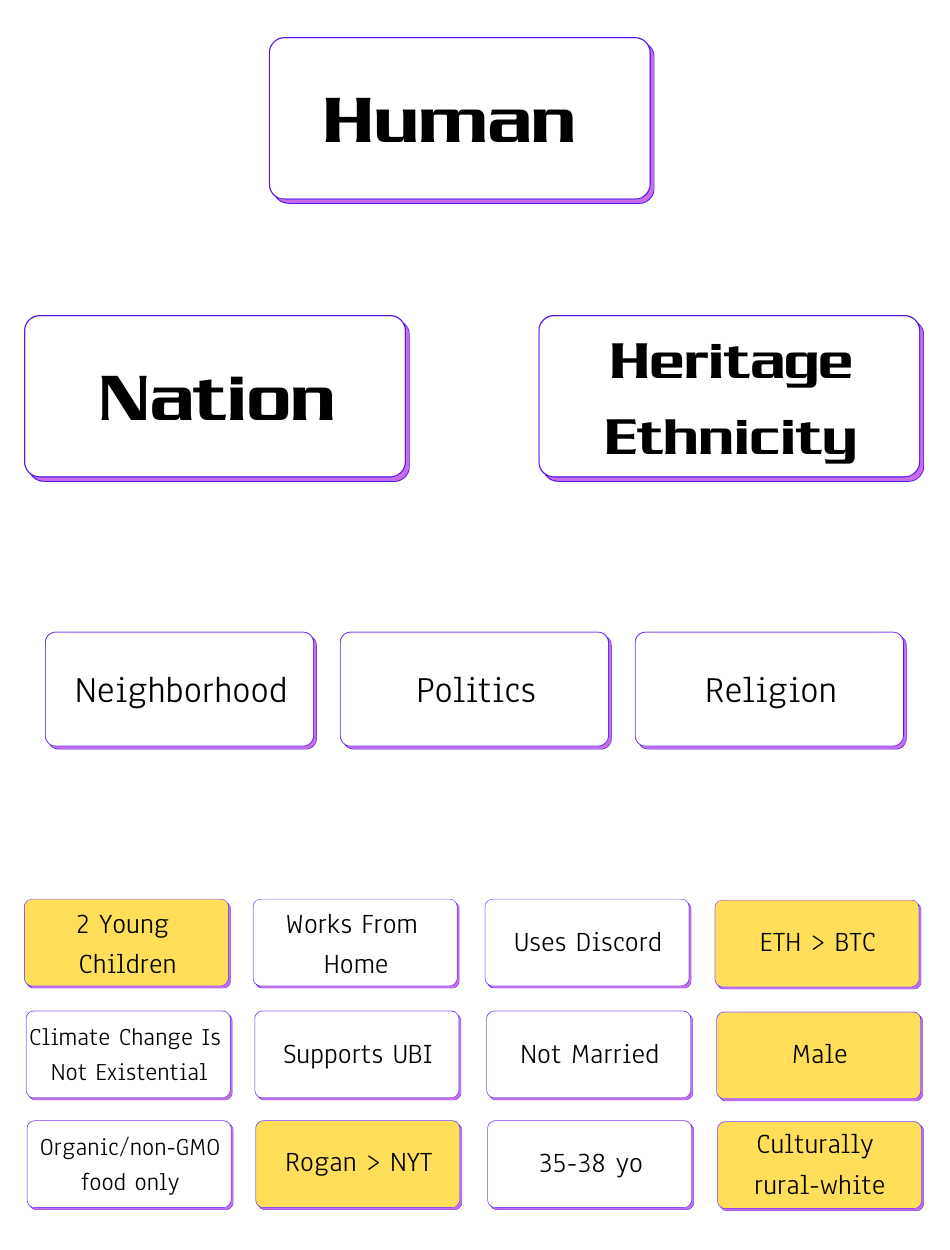
Real estate developers are taking bets on small subsets of these tribal values. Whether the bets will be a flash in the pan, or be a catalyst for the next century of building trends, is yet to be seen.
The most prevalent shift towards developing and building with tribalism in mind over the last few years has been in the homesteading space. (also known as hobby farming in the EU)
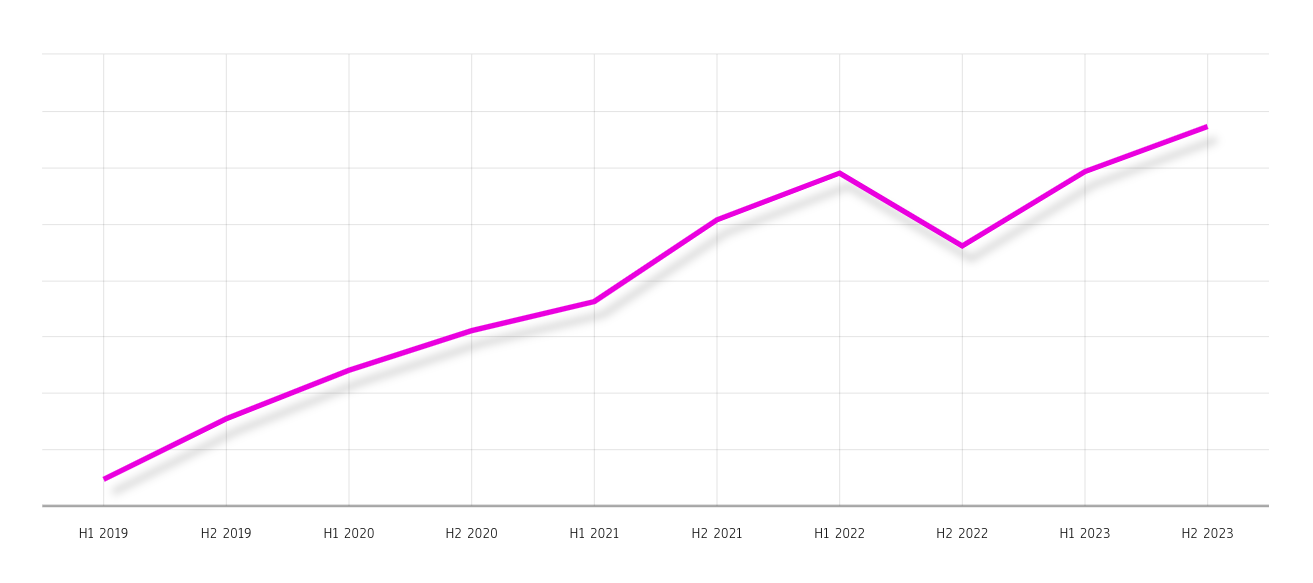
Search activity for "homesteading" among consumers in the U.S. is up 350% since 2019. Smaller ventures like United Land Co source cheap, hard to develop, small parcels in barren parts of the U.S., marketing them to individual with dreams of "the alternative American dream". Even larger institutional players like Invesco (linked below) have gotten in on the action, which seems to lend some credence to the idea of developing and building for smaller tribal subsets of the population.
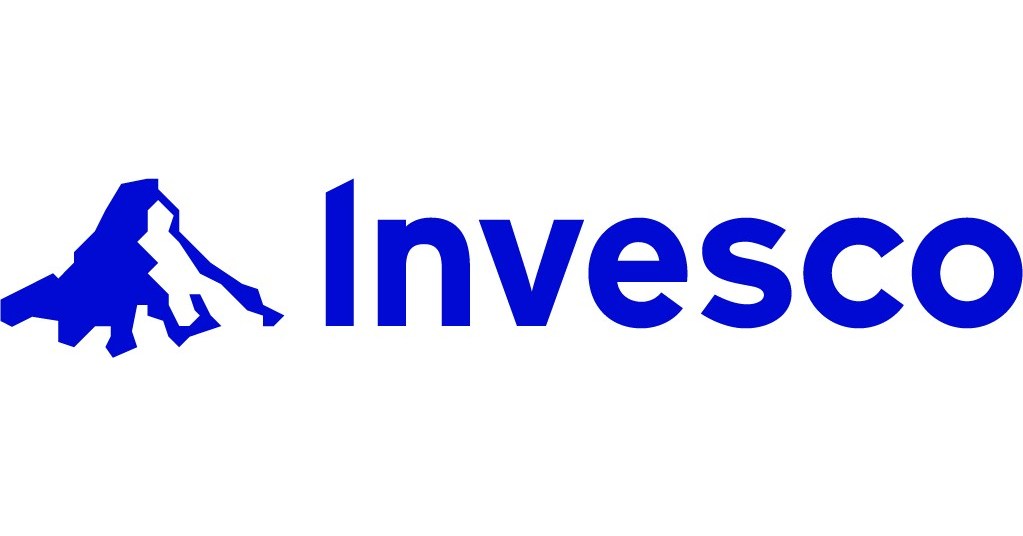
Somewhere between the small land plays and the "big developers" are companies like ACTS Decentralized Real Estate.
I've watched them for some time now. Their tagline is "Build Your Own Heaven On Earth". Dripping with emotions. Their instagram is wildly popular and has been a catalyst for marketing, from what I can tell, with long-form live stories showing off their properties.
ACTS buys up large tracts of land in less expensive, but strongly agricultural areas, and is attempting to subdivide the land into 10-acre "ranchettes", promoting the idea of future owners to be able to have RAAS (ranching as a service) on their land i.e. let a more experience ranching/farming team operate the land, and receive a portion of the profit.
Lots of moving parts, and I'm continuing to watch this unfold to see if the actual farm/ranch production materializes. I tend to think most of us underestimate the skill needed to grow crops or raise cattle on even a small scale. But ACTS is (or has completed at this point maybe) fundraising for future projects, and the "movement" seems to have gained some steam.
What's actually working?
Culdesac (located in Tempe AZ) is a fully built out, heavily value-engineered "car-less" community. Their website touts one of the main reasons people want to live there is "feelings of belonging". It's a sixteen-acre, built-for-rent complex of over 600 apartments and 24k square feet of retail and gathering space. It's estimated to have cost around $140 million to build.
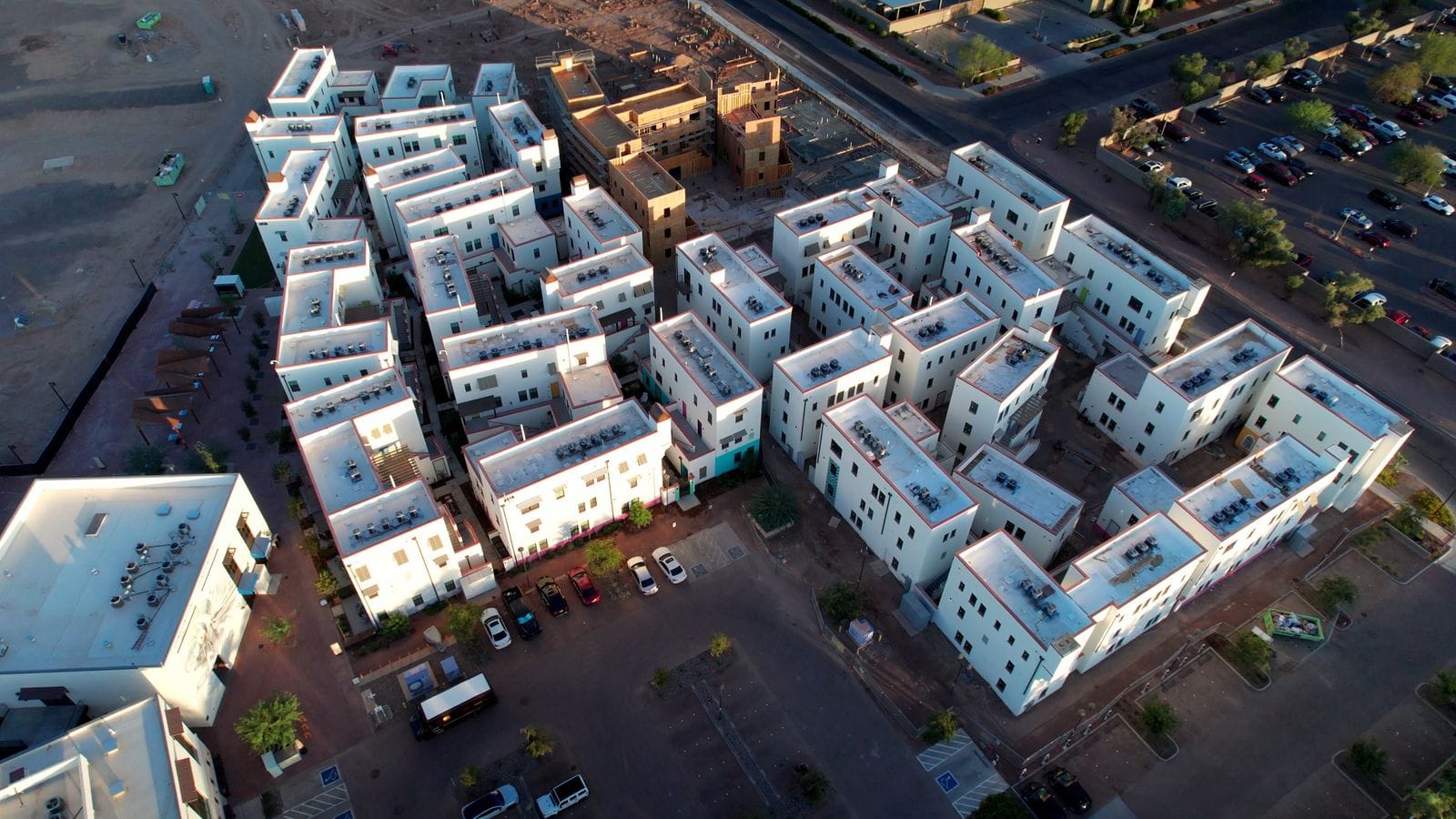
Is this development geared for tribalism?
Sort of.
As the Culdesac development begins to fill up, it's clear that there are some specific individual value-systems that each resident needs to have to enjoy living there.
- Care for the planet/environment
- Disdain for vehicle-based, commuter-centric living
- Strong interest in person-person connections
Those all seem to be pretty large, overarching beliefs that many citizens might claim to share. Even so, this is one of the more "targeted" real estate developments to achieve mainstream success.
Culdesac now has plans to build a second project in downtown Mesa, AZ on a 27-acre site estimated to cost another $200 million, which will include space for "some cars", whatever that means.
Let's wrap this up
As the fragilities of the globally interconnected socio-economic system become increasingly apparent, the resurgence of tribalism seems to be having a nominal affect on housing developments.
Traditional real estate practices have prioritized generic, profit-motivated structures catering to mass appeal, neglecting the diverse needs, desires and value systems of individuals and niche groups. Will this shift in the coming decades given the growing demand for developments tailored to specific lifestyles, beliefs and shared purposes?
Maybe.
Innovative approaches like homesteading, hobby farming, and car-less communities highlight the potential success of real estate projects designed for narrower "tribal" subsets. They represent a shift towards curating spaces aligned with residents' core beliefs and aspirations beyond just functional utility.
As people increasingly reevaluate priorities amplified by the global pandemic, the desire for community resonance and shared values in living spaces has accelerated. Whether this gravitation towards tribalism becomes a enduring catalyst or a passing phenomenon remains uncertain.
Ultimately, as globalism's limitations are exposed, the future may lie in an equilibrium that embraces our intrinsic need for belonging within intimate value-aligned communities, while maintaining the benefits of inter-connectivity. Residential developers' success or failure will likely hinge on its ability to cater to this convergence of individual expression and shared purpose, of that I'm pretty confident.
